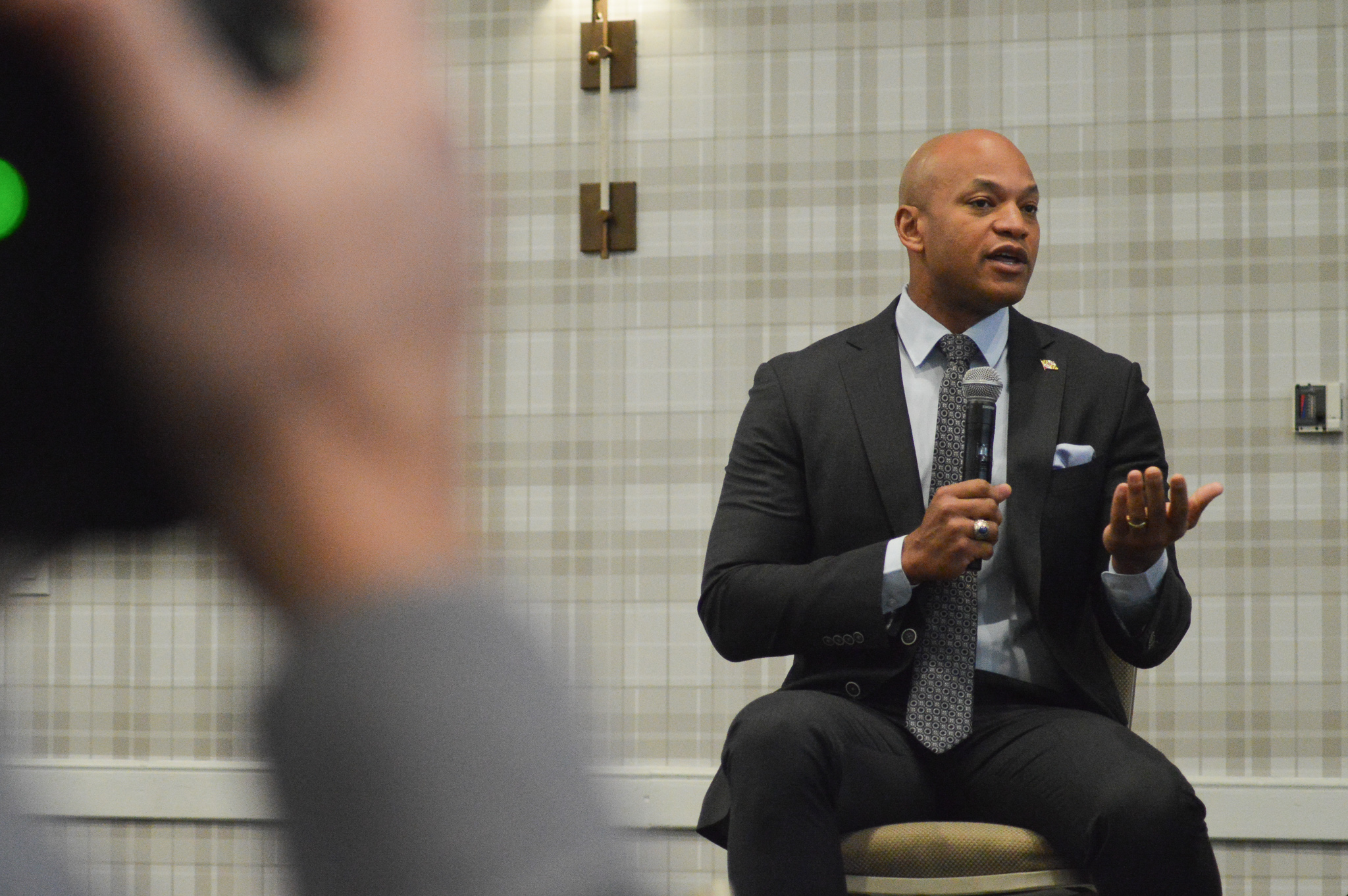ANNAPOLIS – Ahead of the Wednesday release of his proposed budget, Gov. Wes Moore is promising to reform the tax code, cutting taxes for most Marylanders and lowering the corporate tax rate while asking “Marylanders who have done exceptionally well financially” to pay more.
“Anyone who thinks you can just cut your way to prosperity is not being serious,” Moore said at a Tuesday panel hosted by The Baltimore Banner. “But anyone who thinks you can just tax your way to prosperity is not being serious, either.”
“We have to be tailored,” Moore said. “We have to be focused.”
The changes to the tax code will be a feature in a proposed budget that Moore says will feature $2 billion in cuts to spending, an effort to chip away at the $3 billion deficit looming over the state.
Moore, though, emphasized that his proposed budget will be defined not just by cuts, but by changes to encourage growth in the economy.
“Maryland finally has a growth agenda,” Moore said.
Despite the major changes that Moore says he’ll propose, the deficit still looms large over the General Assembly in the opening days of the 2025 legislative session. Republican lawmakers, a stark minority in the legislature, worry that some of the state’s spending could be reckless, with programs and laws being passed without a clear plan to fund them.
“Our position has been, from the very onset, that we should make sure that any of these major type programs should have dedicated funding sources,” said Senate Minority Leader Stephen Hershey Jr., who represents Caroline, Cecil, Kent and Queen Anne’s Counties.
“Some of the programs that are out there,” Hershey said, “if they are not doing what they’re supposed to be doing, then we need to scrap them.”
One recent program under scrutiny is the Blueprint for Maryland’s Future, a sweeping education reform law passed in 2021. It is supposed to funnel $30 billion in additional tax dollars into education in the first ten years, but it’s not clear exactly how much the law will cost and where the state will come up with the funding.
Democratic leaders in the General Assembly are hesitant to make any changes to that landmark law.
“We know the Blueprint is not the cause of the budget deficit we are facing,” said House Speaker Adrienne Jones, a Democrat representing Baltimore County. “We can’t cut our way out of the fiscal situation we’re facing.”
Senate President Bill Ferguson, a Democrat from Baltimore City, said the state wouldn’t back down on its commitment to schools.
But Ferguson expressed a need for evaluating the efficacy of the program throughout the process of its implementation.
“One of the things that we added in the Blueprint was a midpoint check that said, ‘Let’s see what the outcomes look like,’” Ferguson said.
The problem facing the state right now has to do with rising costs and flagging revenues. State Comptroller Brooke Lierman blamed the “anemic growth” in Maryland’s economy since 2017 for the state’s slow growth in revenue. If it weren’t for cannabis becoming a huge financial boon last year, Lierman said at the panel, the state’s sales tax revenue would have decreased. That tax is one of the primary sources of revenue for the state government.
Outside forces, like the rising costs of education and medical care through Medicaid, have an outsized impact on the state’s financial situation. Democratic leaders in particular are worried about how the administration of President-elect Donald Trump might affect the flow of federal funds to Maryland. Jones said she and other Democrats plan to hold Trump to what his predecessors promised.
“We’re going to fight to hold the federal government to the financial commitments they’ve made to Maryland,” Jones said, “particularly when it comes to transportation and infrastructure projects.”
With the uncertainty that Maryland faces from factors both internal and external, Moore urged adaptability in the face of upcoming challenges.
“Adjustments are not just necessary,” Moore said, “adjustments are smart.”

